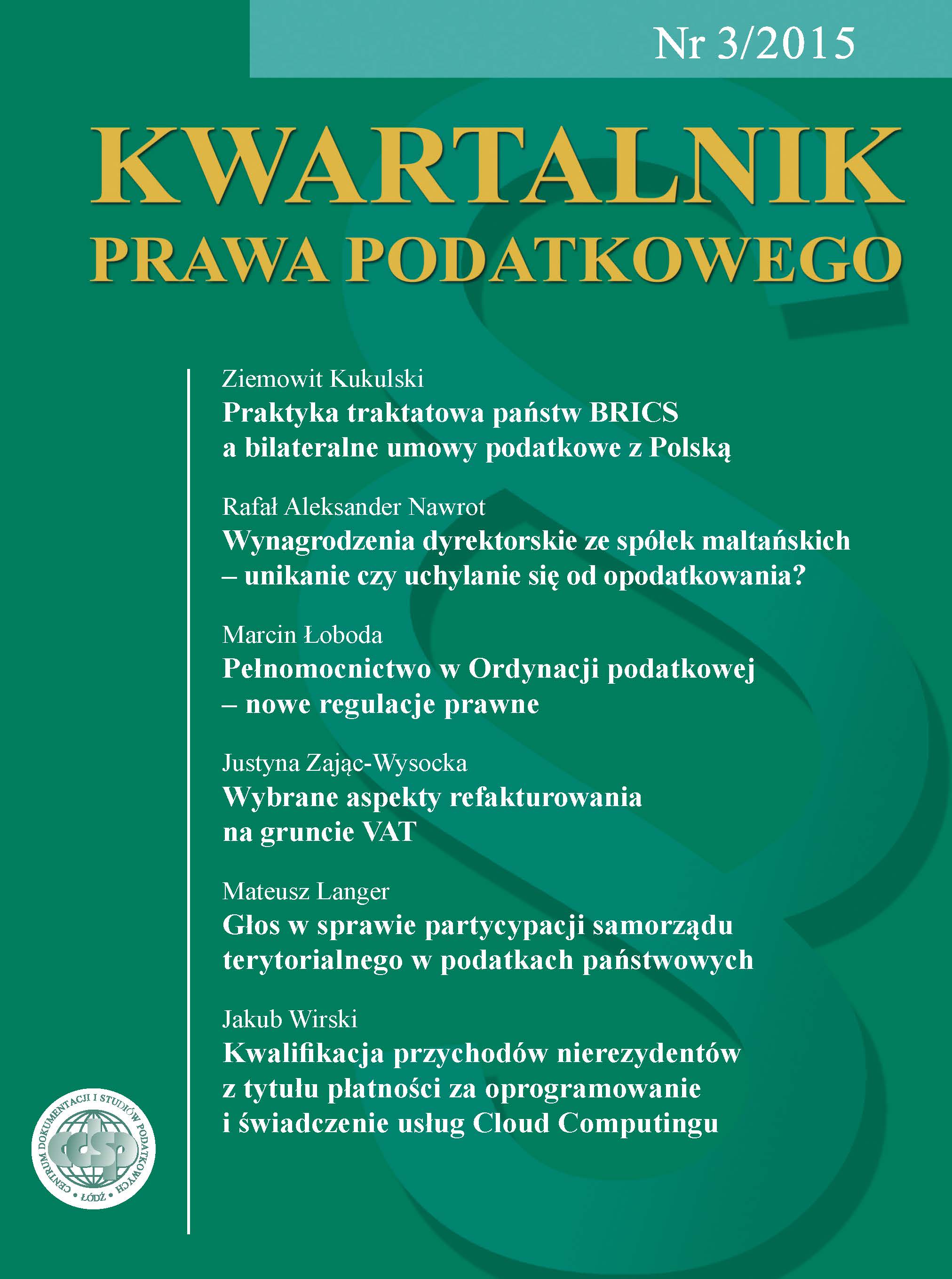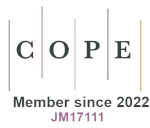Treaty practice of the BRICS countries and their DTCs concluded with Poland
DOI:
https://doi.org/10.18778/1509-877X.2015.03.01Abstract
This article deals with the treaty practice of the BRICS countries with respect to the double taxation conventions concluded by these states with Poland. The Author analyzes the main features of bilateral tax treaties existing in the treaty practice of the BRICS countries, evaluates the impact of the UN Model Convention on them and discusses future possible influence of the BRICS on the DTCs concluded by other countries in the world. In Author’s opinion the recent economic growth and political importance of the BRICS countries may lead to the significant changes in the area of international taxation. The compromise in allocating of taxing powers between the two contracting states reached and improved by decades by the OECD and the UN in their Model Conventions might be challenged by the BRICS countries’ fiscal interests.
Poland is a party of DTCs with Russia, India, China and South Africa. All of these DTCs were concluded in the early stages of transformation and are based on initial versions of the OECD and UN Models. The only exception is the DTC concluded between Poland and India, changed via the amending protocol signed in 2013 introducing many recent developments especially instruments enabling bilateral cooperation in tax matters, LOB clause and abolishing tax sparing credit. In Author’s opinion there is a right time for the similar changes with respect to DTCs concluded with the other BRICS countries. Moreover, Poland may consider concluding DTC with Brazil, due to the existence of historical connections between these two countries since the end of 19. century (third largest Polish diaspora in the World).
Downloads
Downloads
Published
How to Cite
Issue
Section
License

This work is licensed under a Creative Commons Attribution-NonCommercial-NoDerivatives 4.0 International License.
PlumX metrics









